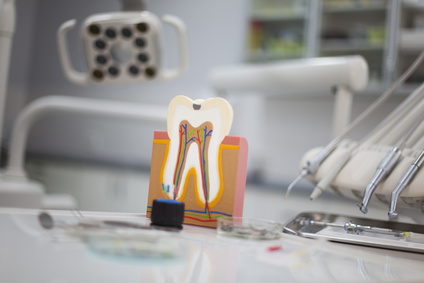Root Canals
A painful tooth can sometimes be saved with a root canal treatment instead of removing it.

Root Canal Treatment
Root canal treatments, also known as endodontic therapy, are mainly performed to save a severely damaged or infected tooth that would otherwise need to be extracted. Contrary to popular belief, root canal treatment isn’t painful. Just like any other dental treatments, local anesthesia is given before the procedure to minimize any discomfort.

Save Your Tooth!
When decay or trauma harms the nerve of a tooth, it will become inflamed or infected causing severe toothache. This type of toothache is very distinct as it is constant and worsens when you lay down and with hot/cold beverages/food. Swelling of the gum and possibly of the face (abscesses) are often associated with this type of tooth infection. A root canal treatment is performed in order to remove the inflamed/infected tissues in the tooth, to eliminate the pain/swelling and to restored the tooth back to its original function.
Tips to Avoid
Root Canals
Here are some tips to keep your teeth healthy, in order to avoid root canal treatments.
- Routine check-ups and cleanings
- Avoid traumatic habits that can damage your teeth
- Avoid delays to fill and repair cavities
- Avoid delays to repair broken fillings/restorations

What to Expect
Different type of teeth vary in the shape and location of the nerve and its tube-shaped extensions (canals) into the root of the teeth, hence the term root canal treatment.
The number of canals differ for each tooth which will affect the treatment time and complexity but the importance is to have all the canals cleaned and obturated properly to reduce the risk of reinfection.

Tooth Fractures and Crowns
It is important to note that most teeth with root canal treatments are more susceptible to fracture because it is weakened by the initial cause that led to a root canal treatment, such as extensive decay/filling or trauma. Tooth fractures can lead to the extraction of the tooth, therefore it is recommended to protect the tooth with a crown after a root canal treatment in order to reduce the risk of fracture.
Please ask our dentists if your teeth can benefit from a root canal treatment and to determine if crowns are required to help reduce the risks of fracture.
">
